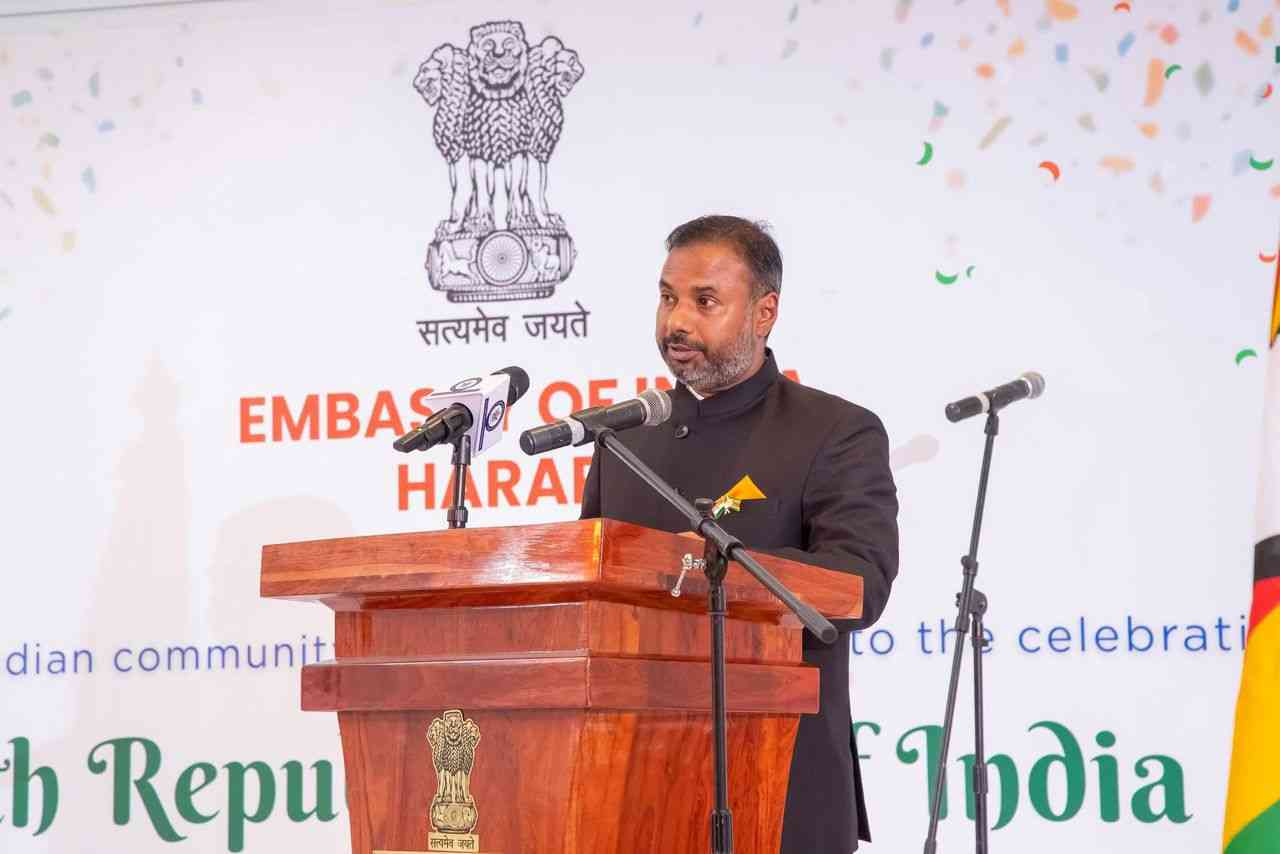
MARCH is the month in which we celebrate women and girls. We also take the opportunity in the month of March to escalate the campaign to end violence against children and women. It, therefore, exasperates me to observe that this month of women has begun with a horrible video of about four young men assaulting a girl.
The video is so disturbing I could only watch it once and that was enough. I could not stand seeing a girl in uniform being assaulted and chased around like an animal by her male schoolmates. What I found more disturbing was the voice of a girl in the background laughing and making fun of the suffering girl!
I wondered if this laughing girl realised that male students were using violence to control and condition behaviour by fellow female learners in the way they have seen their fathers, brothers and neighbours control and condition behaviour of females around them through violence. I also wondered if she realised that the beating of this girl was being used as warning to all the girls, including her.
Growing child-on-child violence
Involuntarily, I went into a mental journey of analysing the incidents of violence in our schools that have been reported recently. This particular video is coming barely a month after a Bulawayo high school student was fatally stabbed by a student from a rival school. Among these videos was one showing two boys in school uniform being forced to hit each other by bigger boys.
What these two boys are learning from the older bullies is that if someone is younger or weaker than you, you have the liberty to be as sadistic to them as you desire. Weaker can include a woman in your life. It is a proven human fact that men who are violent to their female partners experienced violence at some point in their lives.
While the learner-on-learner violence appears to be increasing within the education system, it is not really a new phenomenon and should not be viewed in isolation of the general violence that children experience or witness.
Children witness violence in homes, schools and on the streets and they copy. These videos and reports on child on child violence have been preceded by countless men on women violence. One that comes to mind is the recent one where two men were seen assaulting a 65-year-old woman for suspected witchcraft.
- Car park guard jailed 20 years for killing suspected thief
- Letter from America: There is always something to surprise you in Africa
- OK ramps up expansion drive
- Letter from America: There is always something to surprise you in Africa
Keep Reading
Worrying evidence
Adding their voice to numerous previous studies, Together for Girls in collaboration with Safe to Learn found and informed us that 8% of female students and 11% of male student’s experience sexual or physical violence in schools.
Previously, the 2019 Multiple Indicator Cluster Survey had reported that 66% of interviewed adolescents had experienced some kind of violent punishment, 44% of interviewed parents and caregivers were of the view that violent punishment is necessary.
These reports are resonating with the 2011 National Baseline Survey on Life Experiences of Adolescents which found that among respondents aged 18-24 years, 61% of the females and 49% of the males endorsed that a husband or boyfriend can beat his wife or girlfriend if she cheats on him. One would have thought as a nation we have grown and changed but that appears not to be the case.
When reports and videos on violence perpetrated by children and young people circulate, parents and caregivers appear to be appalled and loudly express their indignation.
I would, however, like to point out that as the parents, caregivers, adults, life coaches of our children, we need to introspect. If we are honest in this introspection, we will realise that we have sown the seeds of violence which are germinating in our children.
Flawed socialisation
A friend once shared with me that she witnessed a scene between six-year-olds that exposed how much we have damaged our children.
She says these children, a boy and a girl, were playing and the boy for some reason wanted to hit the girl. The girl retorted by saying: “You don’t hit me, I am not your wife”. The gist of this is to say husbands have permission to hit their wives. That is what we have, through socialisation, drummed into this six-year-old’s impressionable mind and when she grows up, she will accept that her husband has a right to hit her.
Strong children make strong communities
Verbal indignation is perfunctory and falls short of the mark. We need to do more, we need to take responsibility for the girl we saw being beaten and chased around like an animal in Tsholotsho, we need to take responsibility for the young men stabbed to death in Bulawayo, for the two boys forced to beat each other in Harare and many others.
We have set a bad example; we have sent tacit messages through our behaviour that violence is part of relationships, particularly intimate relationships. We need to change our conduct, men owe it to our sons to teach them that resorting to violence is dysfunctional, weak, unmanly and is a sign of toxic masculinity. We owe it to our daughters to set the standard of what they should accept from a boy or a man.
Women owe it to their daughters to show them that accepting violence from intimate partners is wrong and that violence no matter what the circumstances or reasons is a deal breaker.
Frederick Douglass, the United States abolitionist asserted: “It is easier to build strong children than to repair broken men.”
Strong young men will have good psychosocial skills, confidence in their capabilities and never need to beat up a girl or a younger boy in order to assert their masculinity.
Strong young men will grow up to comfortably coexist with and respect those who are physically weaker than them.
Strong girls will value themselves, reject coercion and draw the line at violence.
Broken men will feel threatened by the strength in their female partners and will always have a constant need to reassure themselves by trampling on those they should be protecting.
Broken women will accept violence and live with it. Broken people make broken families which make broken communities, leading to a broken society.
There has been a lot of effort at building strong girls by supporting their psychosocial skills, supporting them to reject violence and work towards their full potential.
Unfortunately, we have not done much to support the boy to unlearn toxic masculinity drummed into them from birth.
- Sibusisiwe Marunda is the Regional Psychosocial Support Initiative Zimbabwe country director. She writes here in her personal capacity.
The result is that when our strong girls try to occupy their space they meet resistance and violence from the broken boys and men and they quickly comply with the demands of the toxic environment in order to survive and all the investment comes to naught.
We do have to make an effort not to leave our boys behind. It is time we supported our men and boys to interrogate and question toxic masculinity. It’s not too late to build strong children, we just have to make a deliberate choice.
Unless we are prepared to take responsibility for the way we have influenced our children, they will continue walking the path that we have shown them and they will grow up to be broken men and women.











